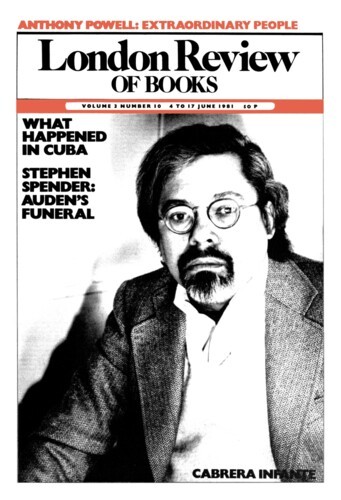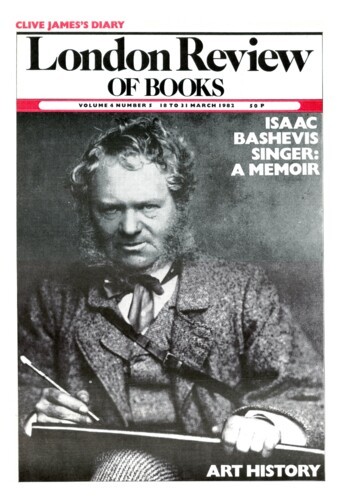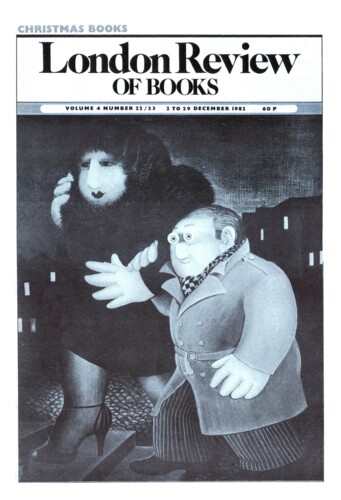A Match for Macchu Picchu
Christopher Reid, 4 June 1981
John Felstiner’s Translating Neruda: The Way to Macchu Picchu is an unusual, honest and enterprising book, but ultimately something of a disappointment. Its title suggests a book-lover’s pilgrimage, an intellectual adventure of the order of, say, The Quest for Corvo or The Road to Xanadu. A great deal of the pleasure it offers derives from the openness – rare in the academic field, where positions tend to be held with entrenched fervour – that the author permits in telling of his unique journey. Having said this, I have to declare that it is this very scrupulousness which makes Felstiner’s achievement at best a minor or compromised one.




